Celsius to Fahrenheit and Fahrenheit to Celsius: Your Straightforward Printable Chart and Conversion Mastery
Associated Articles: Celsius to Fahrenheit and Fahrenheit to Celsius: Your Straightforward Printable Chart and Conversion Mastery
Introduction
With enthusiasm, let’s navigate via the intriguing matter associated to Celsius to Fahrenheit and Fahrenheit to Celsius: Your Straightforward Printable Chart and Conversion Mastery. Let’s weave attention-grabbing info and provide contemporary views to the readers.
Desk of Content material
Celsius to Fahrenheit and Fahrenheit to Celsius: Your Straightforward Printable Chart and Conversion Mastery
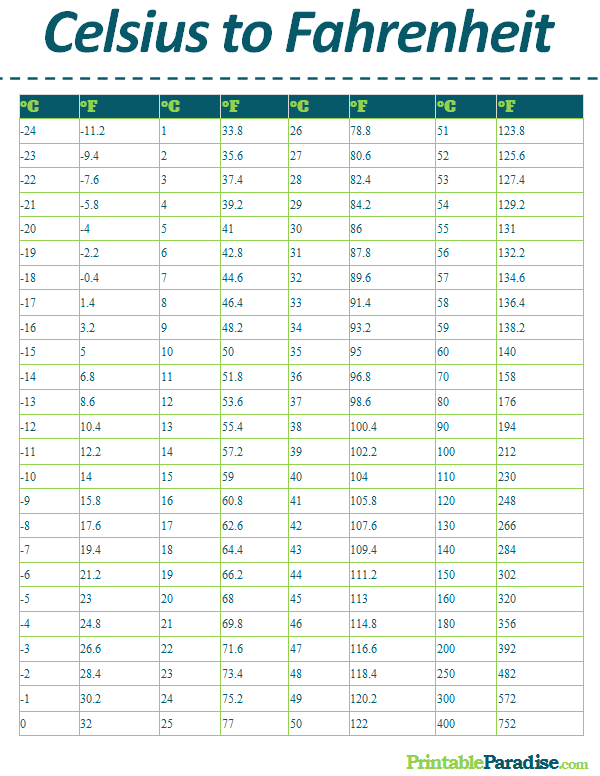
Changing between Celsius and Fahrenheit can appear daunting at first, particularly should you’re used to working primarily with one scale or the opposite. Whether or not you are a chef checking a recipe, a traveler adjusting to a brand new local weather, or a pupil tackling a physics downside, correct temperature conversions are essential. This text offers a complete information to Celsius and Fahrenheit, together with an simply printable chart, conversion formulation, and useful ideas for mastering these important conversions.
Understanding the Scales:
Earlier than diving into the conversion strategies, let’s perceive the elemental variations between the Celsius (°C) and Fahrenheit (°F) scales.
-
Celsius (Centigrade): Primarily based on the freezing and boiling factors of water, 0°C represents the freezing level of water, and 100°C represents its boiling level at sea stage. It is a metric system scale, used globally and most well-liked in scientific contexts.
-
Fahrenheit: A much less intuitive scale, 32°F represents the freezing level of water, and 212°F represents its boiling level at sea stage. Primarily utilized in the US, its origins are considerably arbitrary.
The distinction within the scales’ zero factors and the vary between freezing and boiling factors makes direct comparability tough, necessitating conversion formulation.
The Conversion Formulation:
Two elementary formulation permit for seamless conversion between Celsius and Fahrenheit:
1. Celsius to Fahrenheit:
°F = (°C × 9/5) + 32
This formulation takes the Celsius temperature, multiplies it by 9/5 (or 1.8), after which provides 32.
2. Fahrenheit to Celsius:
°C = (°F – 32) × 5/9
This formulation subtracts 32 from the Fahrenheit temperature after which multiplies the consequence by 5/9 (or roughly 0.5556).
Why these formulation work:
The formulation are derived from the recognized freezing and boiling factors of water in each scales. The issue 9/5 accounts for the completely different ranges between freezing and boiling factors (100°C vs 180°F). Including or subtracting 32 adjusts for the completely different zero factors.
Sensible Examples:
Let’s illustrate the conversion formulation with some examples:
Instance 1: Changing 25°C to Fahrenheit:
°F = (25 × 9/5) + 32 = 45 + 32 = 77°F
Due to this fact, 25°C is the same as 77°F.
Instance 2: Changing 68°F to Celsius:
°C = (68 – 32) × 5/9 = 36 × 5/9 = 20°C
Due to this fact, 68°F is the same as 20°C.
Utilizing the Printable Chart:
Whereas the formulation are correct, a fast reference chart will be extremely helpful for on a regular basis conversions. Beneath is a pattern chart you’ll be able to simply print and use. Keep in mind to develop this chart in your particular wants.
(Printable Celsius to Fahrenheit Conversion Chart – Partial)
| Celsius (°C) | Fahrenheit (°F) | Celsius (°C) | Fahrenheit (°F) |
|---|---|---|---|
| -10 | 14 | 20 | 68 |
| -5 | 23 | 25 | 77 |
| 0 | 32 | 30 | 86 |
| 5 | 41 | 35 | 95 |
| 10 | 50 | 40 | 104 |
| 15 | 59 | 45 | 113 |
(Keep in mind to develop this chart to incorporate the temperature ranges you regularly use.)
Suggestions for Correct Conversion:
-
Use a calculator: For exact conversions, particularly with decimal values, a calculator is extremely advisable.
-
Double-check your work: After performing a conversion, it is all the time a good suggestion to double-check your calculations to keep away from errors.
-
Perceive the context: Contemplate the context of the temperature. A temperature of 20°C feels fairly completely different in a dry local weather in comparison with a moist one.
-
Spherical appropriately: When coping with temperatures that are not entire numbers, spherical to an inexpensive diploma of accuracy relying on the applying.
Past Primary Conversions:
Whereas the essential formulation cowl most on a regular basis wants, extra advanced situations may require extra issues. As an illustration:
-
Changing between Kelvin and Celsius/Fahrenheit: The Kelvin scale (Ok) is an absolute temperature scale the place 0 Ok represents absolute zero. To transform between Kelvin and Celsius: Ok = °C + 273.15. You’ll be able to then use the Celsius to Fahrenheit formulation to transform to Fahrenheit.
-
Temperature gradients and charges of change: Understanding how temperature modifications over time or distance requires extra superior calculations involving derivatives and integrals in calculus.
Purposes of Temperature Conversions:
Correct temperature conversions are important in numerous fields:
-
Cooking: Recipes typically specify temperatures in both Celsius or Fahrenheit. Correct conversion is essential for reaching desired outcomes.
-
Climate forecasting: Understanding climate reviews requires changing between Celsius and Fahrenheit, relying in your location and the supply of the knowledge.
-
Drugs: Physique temperature, treatment storage, and numerous medical procedures require exact temperature management and correct conversions.
-
Engineering: Many engineering functions, from materials science to thermodynamics, require correct temperature measurements and conversions.
-
Science: Scientific experiments and knowledge evaluation typically contain temperature measurements in Celsius, requiring conversions if working with Fahrenheit knowledge.
Conclusion:
Mastering Celsius and Fahrenheit conversions is a invaluable ability with functions throughout quite a few fields. By understanding the conversion formulation, using a printable chart just like the one offered, and following the ideas outlined, you’ll be able to confidently and precisely convert between these two important temperature scales. Keep in mind to all the time double-check your work and contemplate the context of the temperature when decoding the outcomes. This text serves as a complete information that can assist you navigate the world of temperature conversions with ease and precision. Now, armed with this data, you’ll be able to confidently sort out any temperature conversion problem that comes your means. Print out the chart, follow the formulation, and grow to be a temperature conversion skilled!
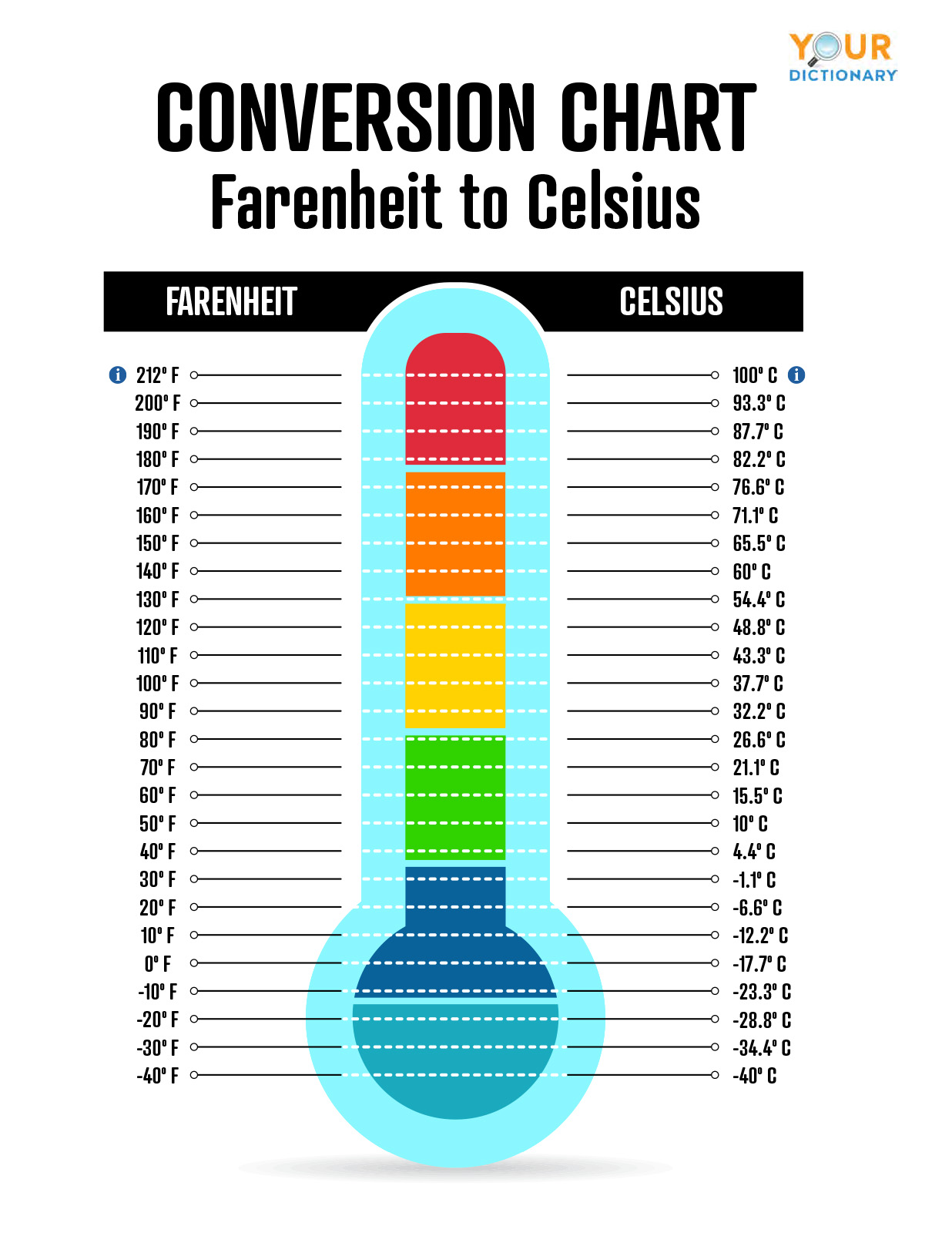
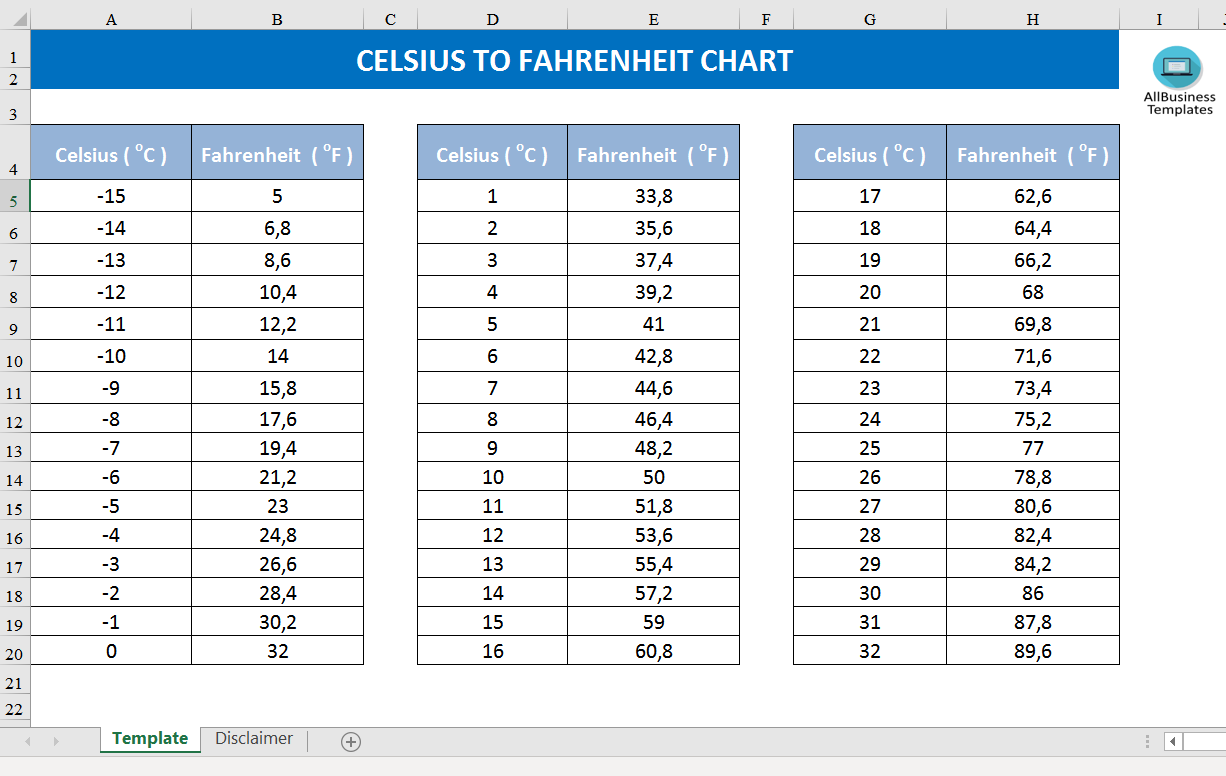



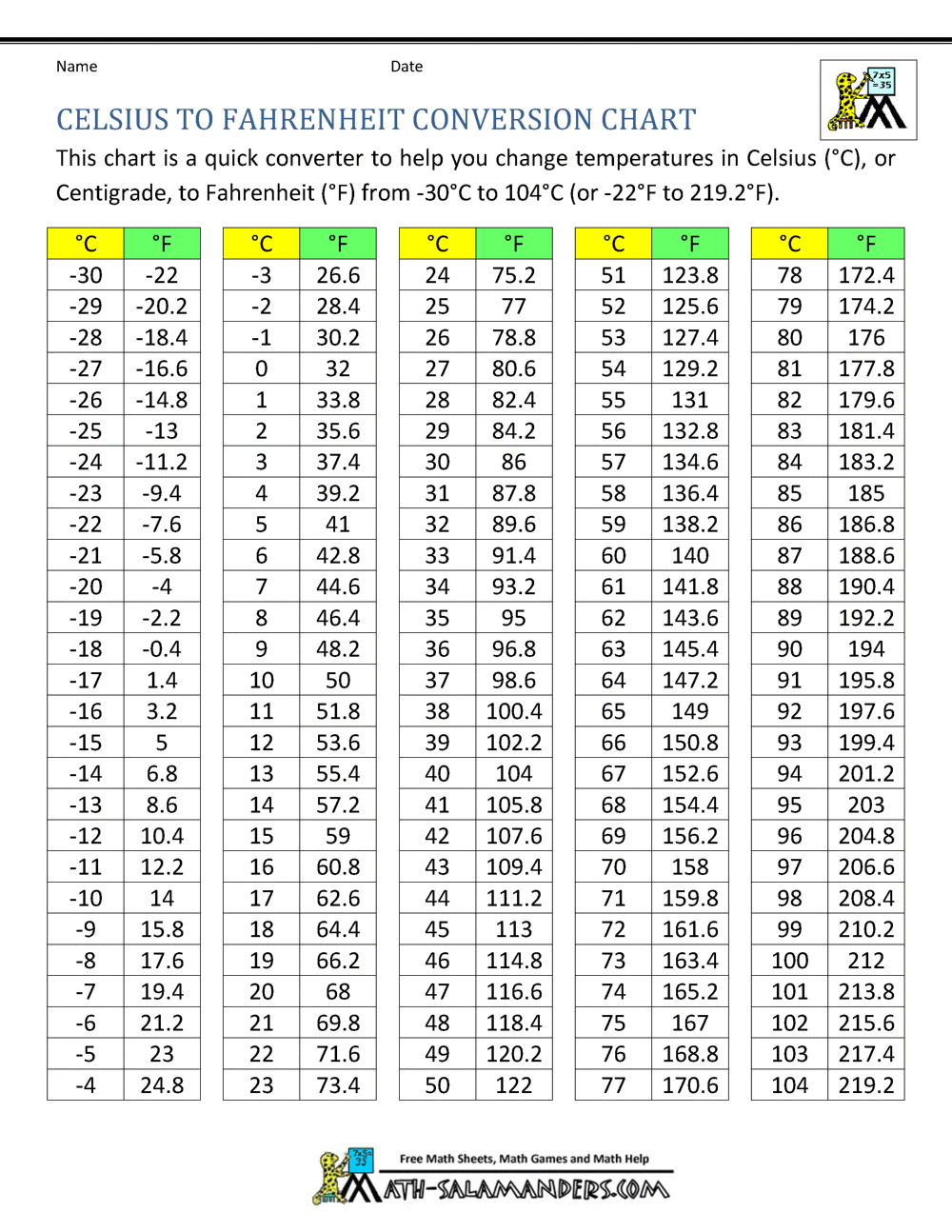
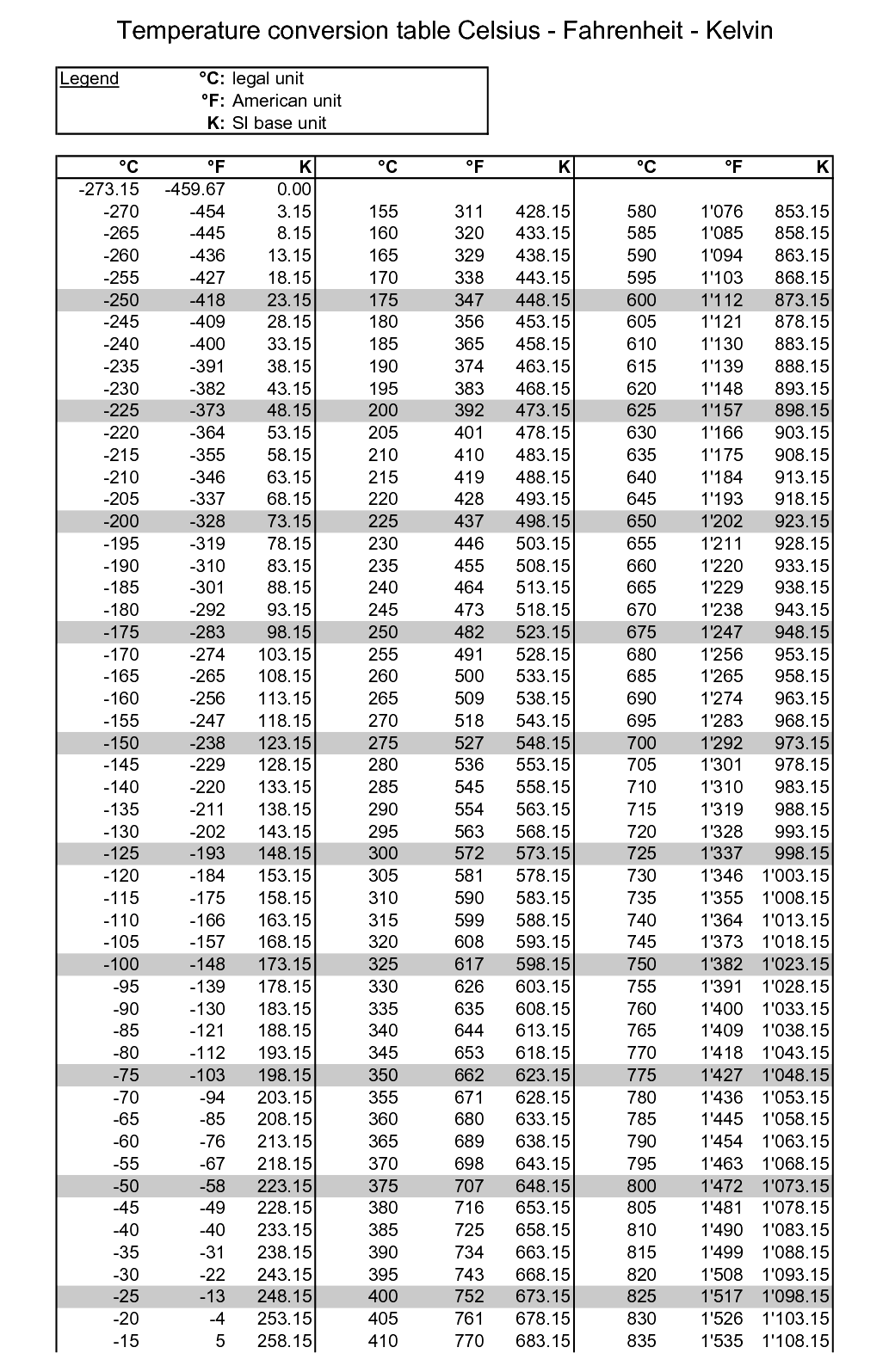
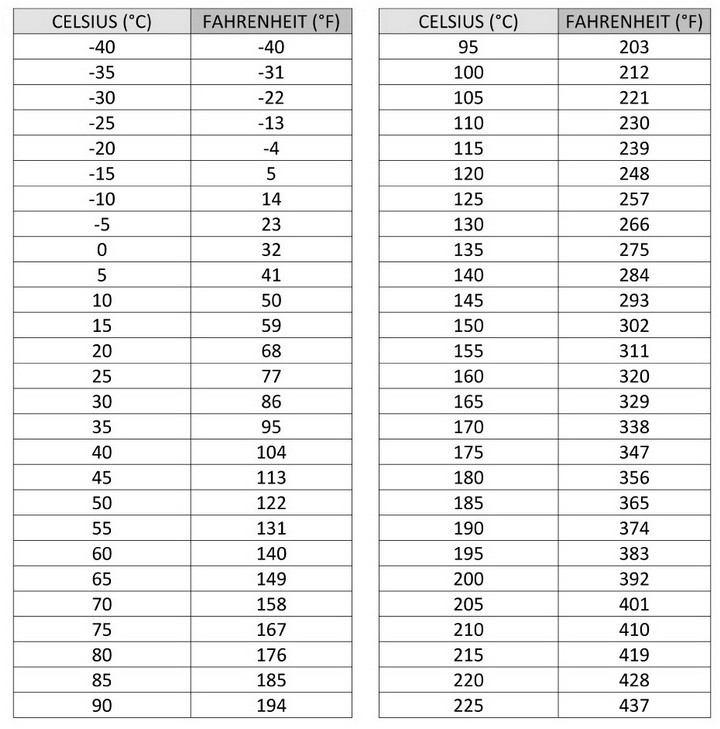
Closure
Thus, we hope this text has offered invaluable insights into Celsius to Fahrenheit and Fahrenheit to Celsius: Your Straightforward Printable Chart and Conversion Mastery. We admire your consideration to our article. See you in our subsequent article!